| |
Keynotes |
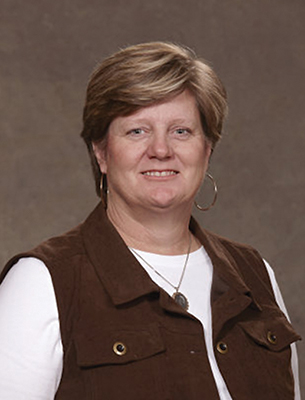 |
Laura Foell has been a volunteer for United Soybean Board for 7 years and is currently serving on their board of directors. She grew up on a small farm in Southern Illinois and has been farming with her husband in Iowa since 1984, in Sac County, Iowa. She and her family are conservation, no-till farmers who use the latest technology available to help them be environmentally, economically, and socially sustainable. They raise corn and soybeans on their 900-acre farm in Northwest Iowa with a desire to produce crops profitably using sound farming practices. “Our goal is to leave the land to future generations in a higher productivity state than when we began farming,” says Foell. |
 |
Jerry L. Hatfield currently serves as the Laboratory Director for the National Laboratory for Agriculture and the Environment, Ames, Iowa, and Director of the Midwest Climate Hub. With a background in agricultural climatology, Hatfield has focused his research on soil-plant-environment interactions and quantifying the effect of weather and climate on crop productivity. He knows farmers and producers deal with the weather every year and they have the tools to decrease their variation in crop production by ensuring their soil is in the best state possible to supply water and nutrients to the crop. His vision is to build climate resilient cropping systems by creating a whole new understanding of the genetics x environment x management interactions. |
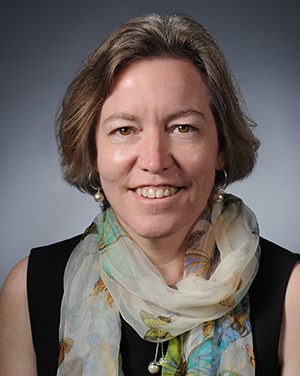 |
Catherine L Kling is a Charles F. Curtiss Distinguished Professor of Agriculture and Life Sciences and a professor of economics at Iowa State University. She serves as the director of the Center for Agriculture and Rural Development (CARD), a USDA-NIFA policy research center. In her work at CARD, Kling is undertaking research to examine how agricultural practices affect water quality, wildlife, soil carbon content, and greenhouse gases. As an economist, she is interested in evaluating and understanding the tradeoffs associated with providing adequate food, fiber, and environmental quality to society. |
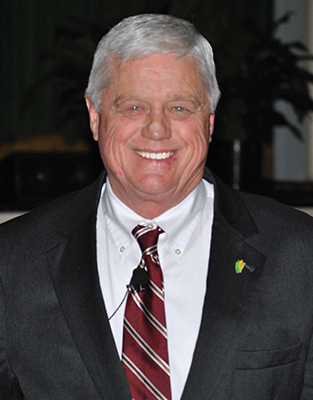 |
Garry Niemeyer graduated from the University of Illinois with a bachelor’s degree in agricultural economics in 1970, and to a third-generation farm near Auburn, Illinois. Over the years he has raised cattle, hogs, dairy, soybeans, corn and wheat. In 2001, after serving 9 years on the Board of the Illinois Corn Growers Association, he was elected president. In 2012, he was elected president of National Corn Growers Association. Currently, he is a member of the Farm Foundation and a director of Waterways Council Inc. Over the years, he has been active in the local Lake Springfield Watershed Commission. Conservation issues are very important to him and striving for farmer profitability as well as a sustainable future for agriculture has become his mission. |
| |
Farmer Panel Speakers |
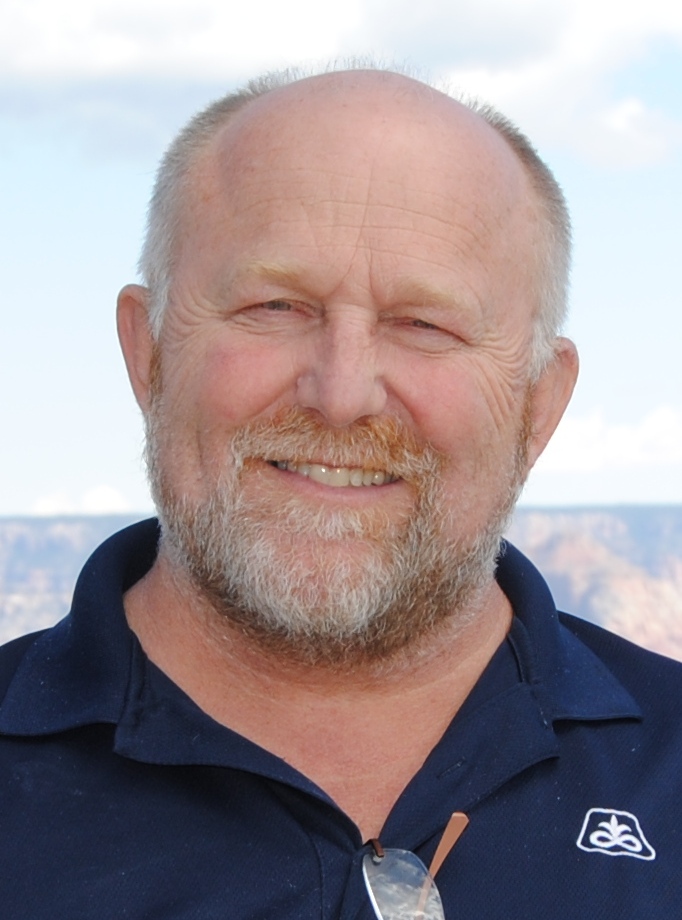 |
Andy Bensend was born and raised on a dairy farm and was a dairy farmer for 4 years before beginning crop farming in 1986. On his 3000 acre operation in Dallas, Wisconsin, he grows corn, soybean and alfalfa. His on-farm practices include no-till, strip till and cover crops. Soil conservation is one of his family's passions and crop rotation is practiced on every acre. Alfalfa is grown on the most vulnerable slopes and sold to neighboring dairy operations, which in turn provide the manure for his fields. Bensend also operates a custom farming company, specializing in planting and forage harvesting for dairies, and a seed sales and consulting services company that provides nutrient management plans and agronomic services for area farms. “Be good to the land and it will be good to you,” says Bensend. |
 |
Pat Feldpausch has been farming in Clinton County in central Michigan for 27 years, on a farm that has been in his family since 1960. He has a 2200 acre corn, soybean and wheat operation and another custom farming operation of 4000 acres. “On our farm, we make sure that the land will remain in better shape than we found it,” says Feldpausch. |
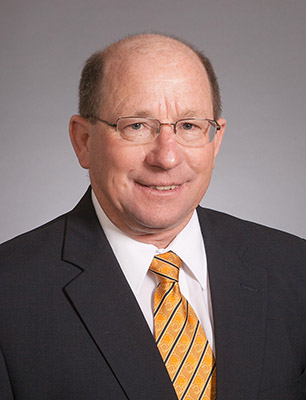 |
Ray Gaesser, a soybean producer from Corning, Iowa, is president of the American Soybean Association (ASA). He currently serves as chairman of the Farm Bill Task Force and the Bio-Tech Working Group. He has served as chairman of ASA’s Public Affairs Committee, Finance and Strategic Planning committees, Membership & Corporate Relations Committee, Audit Committee and served on the Trade Policy & International Affairs Committee. A member of the Iowa Soybean Association since the 1980s, Gaesser was President of his state association in 2007-2008 and also served on the Iowa Department of Economic Development’s Agriculture Products Advisory Committee from 2006-2011. Gaesser operates a 6,000-acre farm that raises 3,000 acres of soybeans and 3,000 acres of corn. He and his wife Elaine have a daughter, Jennifer, and a son, Chris. |
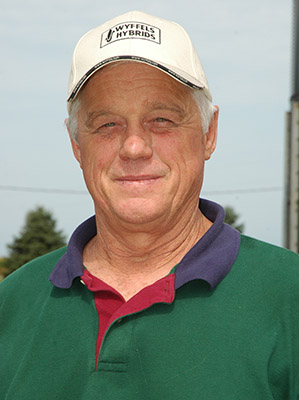 |
Garry Niemeyer graduated from the University of Illinois with a bachelor’s degree in agricultural economics in 1970, and to a third-generation farm near Auburn, Illinois. Over the years he has raised cattle, hogs, dairy, soybeans, corn and wheat. In 2001, after serving 9 years on the Board of the Illinois Corn Growers Association, he was elected president. In 2012, he was elected president of National Corn Growers Association. Currently, he is a member of the Farm Foundation and a director of Waterways Council Inc. Over the years, he has been active in the local Lake Springfield Watershed Commission. Conservation issues are very important to him and striving for farmer profitability as well as a sustainable future for agriculture has become his mission. |
| |
Sustainable Corn Scientists and Extension Educators |
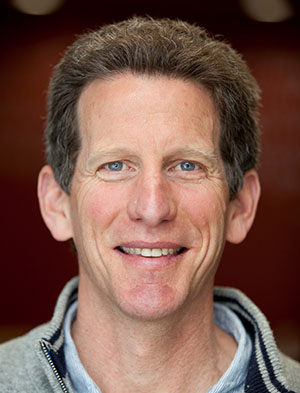 |
Robert Anex has been a professor of biological systems engineering at the University of Wisconsin, Madison since 2010. He has studied agriculture and the sustainable use of agricultural products since 1995 while at the University of Oklahoma and Iowa State University. He studies the economic and environmental sustainability of agricultural systems. His recent focus has been on understanding and adapting to the variability in agriculture to increase resilience. Dr. Anex was raised on a small family farm in Northern California where he learned the importance of work and paying the bills. He says, “Our children's children's children will need productive farms in order to have food to eat,” says Anex. |
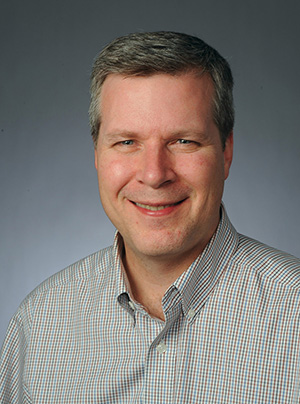 |
J. Gordon Arbuckle Jr.is an extension sociologist at Iowa State University and co-director of the Iowa Farm and Rural Life Poll, an annual survey of Iowa farmers. His research and extension efforts focus on improving the environmental and social performance of agricultural systems emphasizing soil and water quality. J. helps to manage family farms in Boone County, MO (cow-calf) and Scott County, IN (soybean). The Indiana farm has been in his family since 1865. He encourages “farmers and agricultural advisors to think in terms of decades or generations rather than years when making decisions that impact soil health.” |
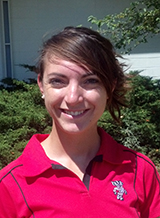 |
Becky Bailey is a graduate research assistant at the University of Wisconsin in Madison. She is studying how weed management strategy and nitrogen rate influence nitrous oxide emissions in corn-based cropping systems in the Midwest. She grew up in eastern Pennsylvania, majored in chemistry and French at Wheaton College (IL) and worked at the USDA’s Beltsville Agricultural Research Center (MD) prior to going to UW-Madison. "I really value unbiased research. I think it's important to apply knowledge gained from research to current on-farm practices, in a way that provides realistic solutions for farmers," says Bailey. |
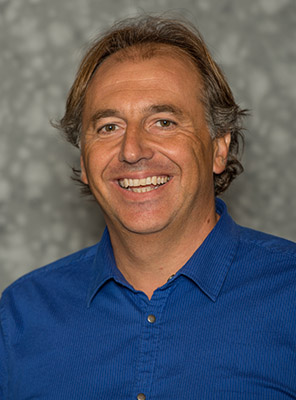 |
Bruno Basso is an associate professor in the Department of Geological Sciences and the W.K. Kellogg Biological Station at Michigan State University. His research deals mainly with water, carbon, nitrogen cycling and modeling in agro-ecosystems, and spatial analysis of crop yield. Basso's modeling research has focused on extending soil-crop-atmosphere models to spatial domains at the field scale and, in particular, on developing, testing and deploying SALUS, a next-generation model that integrates crop productivity with water, carbon and nutrient fluxes in a spatially explicit manner. He is the author of more than 120 scientific publications and was awarded a fellowship in 2013 by the American Society of Agronomy. |
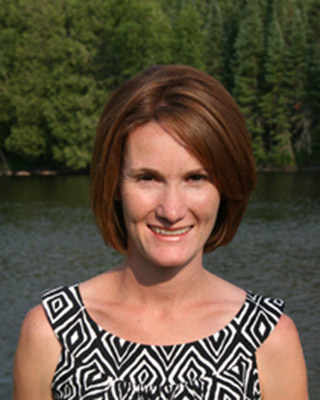 |
Laura Bowling is an associate professor of hydrology with 20 years’ experience in the field. Her research interests include quantification of the hydrologic and water quality impacts of agricultural drainage practices, investigation of edge-of-field and watershed-scale conservation measures, and evaluation of water resources sustainability, with emphasis on agricultural water use. Her vision is that “efficient and sustainable water resources management be an integral part of farm management.” Laura’s family is from northeastern Ohio. “And my sister just won’t accept that Indiana sweet corn is better than Ohio’s,” Bowling says. |
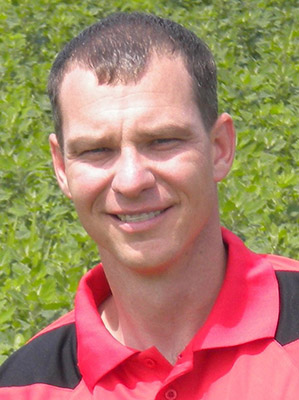 |
Vince Davis is an assistant professor of cropping systems weed science and an extension specialist in the Department of Agronomy at the University of Wisconsin-Madison, with responsibilities for annual agronomic crops. He grew up on a small farm in west-central Illinois where he started a weed science career by hoeing weeds in soybean fields, and he eventually earned a M.S. and Ph.D. in weed science from Purdue University. His research focuses on herbicide resistance, crop-weed interactions including influences to production and climate, and integrated management including herbicides, tillage, and cover crops. He says, “Sustainability requires diversity!” |
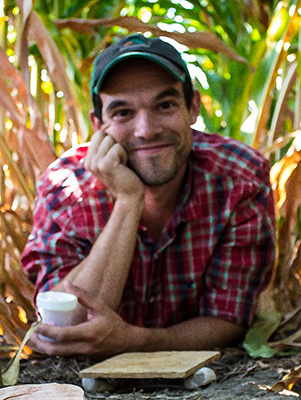 |
Mike Dunbar came to Iowa State in 2008 where he earned a master’s degree in ecology and evolutionary biology, studying rotation-resistance in corn rootworm. Currently, he is working towards a doctorate in entomology and is focusing on how cover crops and crop rotation schemes interact with both beneficial and pest insects. He is particularly interested in the interaction of crop rotation schemes and the evolution of Bt resistance in corn rootworm. “Crop rotation and increased landscape diversity are simple solutions to many of our current dilemmas,” says Dunbar. |
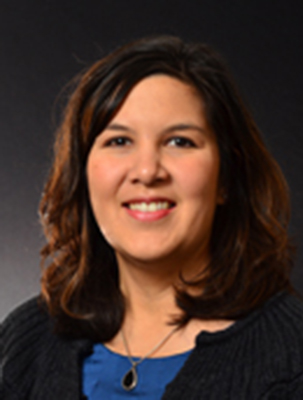 |
Laura Edwards has been the extension climate field specialist for South Dakota State University Extension since December 2011. She works out of a regional extension center in Aberdeen and has almost 15 years of experience in applied climatology and climate services. “For some, talking about the weather is just making small talk. I’m lucky enough to be able to talk about it for a living, especially with farmers,” says Edwards. “Never stop learning and don’t shy away from experimenting. There is no single best path to success in agriculture.” |
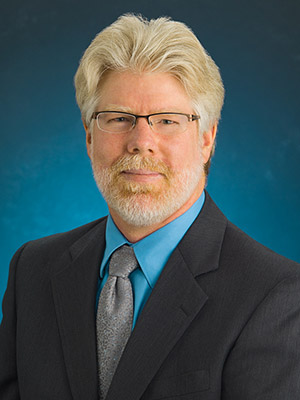 |
Darin Eastburn joined the University of Illinois as an extension specialist in vegetable diseases and later accepted a research/teaching position focused on fungal plant pathogens. Recent projects include studies on cover cropping, disease suppressiveness of soil, and the effects of elevated CO2 and ozone on diseases of soybean and corn. He is a current member of the Administrative Council for North Central SARE (Sustainable Agriculture Research and Education) program. His research has focused on alternative plant disease management strategies. |
 |
Since 1991, Charles Ellis has worked as a regional extension natural resources engineering specialist serving the counties of east-central Missouri. His work has included the areas of nutrient management, including variable rate applications of nitrogen in corn with the use of sensor technology; precision farming applications, including yield mapping, variable rate applications, and guidance systems; no-till cropping systems, focusing on a corn/soybean rotation; and grain drying and storage management. In addition to his university extension work, he manages a 600-acre crop and cattle farm in east central Missouri using no-till and precision farming methods. “Agriculture is constantly changing and producers that adapt best to these changes will be the successful ones,” Ellis says. |
 |
Jane Frankenberger, professor of agricultural and biological engineering, focuses on tile-drained agricultural watersheds and conservation practices to improve water quality such as drainage water management. She and her graduate students use both monitoring and computer simulation models to quantify the impacts of potential drainage management strategies in order to help farmers and other make better decisions. Before joining Purdue University she spent eight years working in Africa in the Democratic Republic of Congo (formerly Zaire) and in Senegal. “Agricultural producers have a greater opportunity to influence water quality – positively or negatively – than almost any others because of the amount of land they manage,” says Frankenberger. |
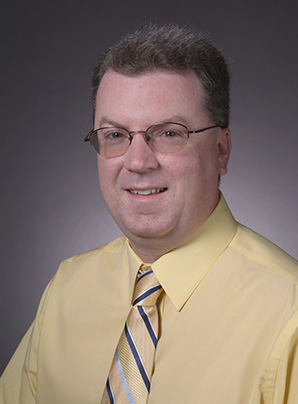 |
Chad Hart is an associate professor of economics and an extension economist at Iowa State University. He has been affiliated with Iowa State University over 20 years and appointed as faculty and extension member for 6 years. His expertise is in cover crop marketing, agricultural and energy policy, biofuels and international trade. He is originally from southwest Missouri where his family raised a few cattle and had a locker plant. “It’s hard to lose money making a profit,” says Hart. |
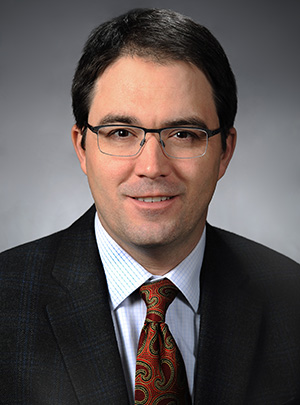 |
Matt Helmers is a Dean's Professor in the College of Agriculture and Life Sciences and Professor in the Department of Agricultural and Biosystems Engineering at Iowa State University. He has been at Iowa State for 11 years conducting research and extension activities on drainage water quality and ways to optimize drainage while minimizing nitrate loss. He spent much of his youth on his grandfather's farm in northwest Iowa. “My goal with my work is to ensure economic vitality of agriculture while improving water quality," says Helmers. |
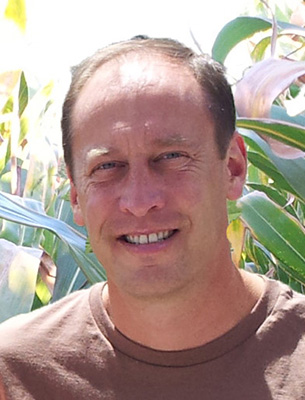 |
Chad Ingels has been an extension watershed specialist in northeast Iowa for 14 years and has coordinated over 200 on-farm soil, water and nutrient management demonstrations. He provides facilitation and administration services for farmer-led watershed councils as they develop and implement performance-based incentive programs in their impaired watersheds. He also leads the Sustainable Corn Project’s extension team. His current focus is on assisting farmers with evaluations of cover crops and denitrifying bioreactors. “It's an exciting time to be involved in agriculture with new technological advances seemingly every cropping season. Many farmers are working to reduce their environmental impact while continuing to increase crop production and build resilience into their farming operations,” says Ingels. |
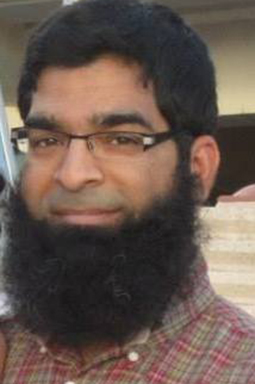 |
Javed Iqbal is a postdoctoral research associate at Iowa State University. He has worked in the field of soil ecology and environment for 8 years, measuring the effects that land use changes and various land management practices have on greenhouse gas emissions. He is also evaluating the effects of cover crops and different drainage depths on nitrous oxide emissions. Iqbal is concerned about the impacts climate change will have on society and wants to be involved in work that helps mitigate the causes and effects. “I also think we need to work hard, adopt sustainable techniques and grow products in a way that conserves soil,” says Iqbal. |
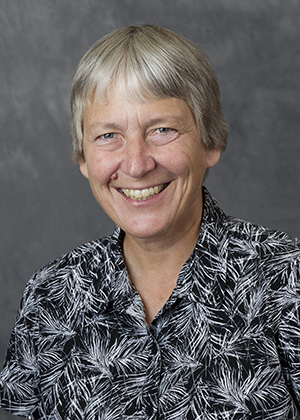 |
Eileen J. Kladivko is a professor of agronomy at Purdue University where she teaches and does research and Extension work in soil physics, soil biology and soil management. Her research studies over the past 32 years have included cover crops, soil health, earthworms, no-till, drainage and water. She is a founding member of the Midwest Cover Crops Council. Her overall research focus has been to identify soil management systems that improve environmental quality and promote agricultural sustainability. |
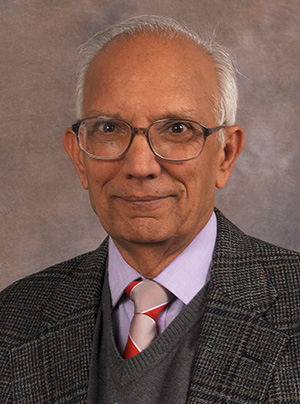 |
Rattan Lal has been affiliated with The Ohio State University since 1987 and currently serves as a distinguished professor of soil science and director for the Carbon Management and Sequestration Center. He also teaches courses, such as Environmental Soil Physics and Soil and Climate Change. His research interests are soil carbon sequestration, soil quality, sustainable intensification, tropical soils and food security. He grew up on a farm and is familiar with agriculture in developing and developed countries. “Produce more from less by decreasing losses, increasing use efficiency and recycling by-products,” says Lal. |
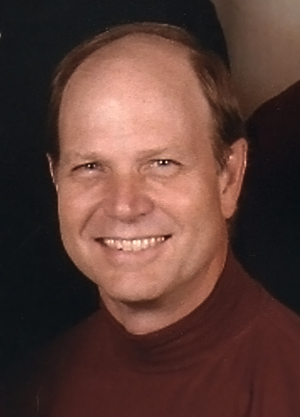 |
Joe Lauer grew up in north central Minnesota and holds degrees from St. John's University and the University of Minnesota. From 1985 to 1994, he was a faculty extension agronomist at the University of Wyoming. In 1994, Joe joined the agronomy faculty at the University of Wisconsin as a corn extension agronomist where he is responsible for developing education programs and materials for Wisconsin farmers and industry. Objectives of the program focus on management decision-making regarding crop productivity, quality and production system efficiency including hybrid selection, rotation, tillage, replanting and yield loss damage assessments. Emphasis is on impact of cropping practices on grower profitability, the environment, and natural resource conservation. |
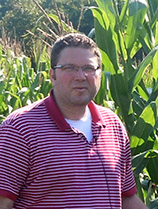 |
Scott Lee is a graduate research assistant at Iowa State University pursuing a PhD in Soil Science with an emphasis in Soil Management. Prior to his studies at Iowa State, he practiced as a licensed Professional Civil Engineer in the field of water resources engineering for 12 years. His current research efforts are focused on evaluating the impact of soil erosion on crop yields. His goal is "to protect our soil resources and ensure a sustainable agricultural future through conversation-minded practices." |
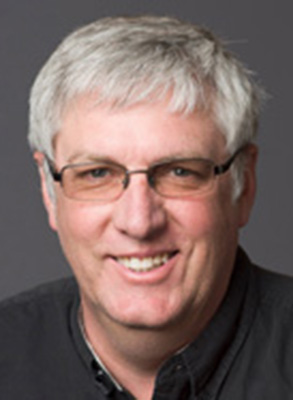 |
Bryan Overstreet is in his tenth year as an agriculture and natural resource extension educator in Jasper County Indiana. He has assisted with on-farm N rate trials, promoted cover crops and participated in the Community Collaborative Rain, Hail and Snow Network to measure and map precipitation in his county. Prior to joining the staff at Purdue, he worked 20 years for a local co-op as an agronomist. “We need to protect and improve the soil that we have,” says Overstreet. “We can do this through conservation and cover crops. Soil is a living organism that needs to be fed and taken care of properly.” |
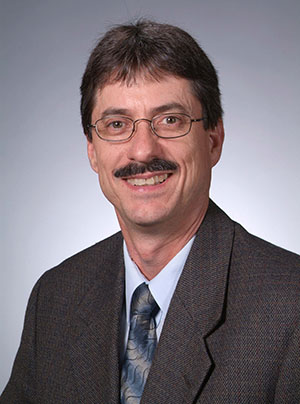 |
John Sawyer is a professor and extension soil fertility specialist in the Department of Agronomy at Iowa State University. He provides statewide leadership for extension soil fertility and nutrient management programs. His research focus is the study of nutrients in soils and plants, and fertilizer and manure nutrient management related to crop production and the environment. Dr. Sawyer grew up on a grain-livestock farm in Northern Ohio and worked at the University of Illinois and GROWMARK, Inc. regional cooperative before coming to Iowa State University. “Farmers utilize the soil resource for production of food, feed, fiber, and bioenergy. They operate a business that must balance profitability with maintenance of the soil and water resources -- which are tough challenges," says Sawyer. |
 |
Peter Scharf has been a professor and an extension nutrient management specialist for 19 years. His program covers all aspects of fertility for major agronomic crops, but with a focus on nitrogen fertilizer management for corn. He has done over 400 on-farm experiments and demonstrations. He is interested in studying topics that are both practical and important for farmers. |
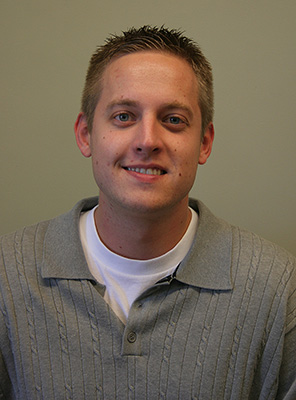 |
Hans Schmitz began in Purdue Extension as a 4-H Youth Development and Ag and Natural Resources Educator in Orange County, Indiana. After 6 years in service, he currently serves as the County Extension Director and Ag and Natural Resources Educator in Gibson County, Indiana. As a sixth generation farmer, Hans owns one Ayrshire dairy heifer. “The effects of climate change and extreme weather variability affect farmers more greatly than nearly any other occupation," says Hans. |
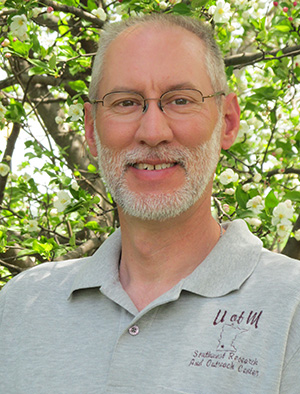 |
Jeffery S. Strock is a professor and soil scientist at the University of Minnesota in the Department of Soil, Water and Climate. He has been a member of the Faculty since 1999 and is located at the Southwest Research and Outreach Center, near Lamberton, MN. Dr. Strock’s research and outreach/education program focuses on agricultural drainage and water and nutrient management in agricultural systems, addressing production needs, and quantifying/mitigating negative off-site environmental impacts. His mission is to inform agricultural and non-agricultural stakeholders about the associated risks and benefits of various soil and water conservation and management practices on crop productivity, profitability, and environmental quality. |
 |
Marilyn Thelen has been an Educator with MSU Extension for 17 years. Her areas of expertise include livestock and dairy production management, manure management and field crops. In recent years, Marilyn has been working with producers on the impacts of climate variability and change production systems. She farms with her husband Lee in Central Michigan. They raise corn, soybeans, and wheat on 1800 acres. No-till, cover crops and manure are utilized in the cropping system. “Soil is the foundation of agriculture. Finding the balance between successful crop production and long-term soil health is the key to a successful system,” says Thelen. |
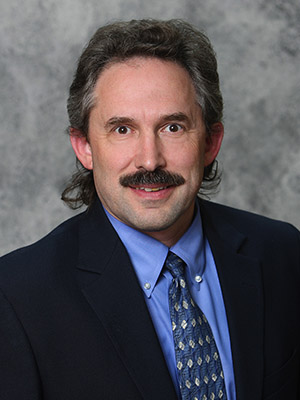 |
Dennis Todey is the South Dakota State Climatologist at South Dakota State University and an associate professor in the Department of Agricultural and Biosystems Engineering. His position entails collecting, tracking and reporting on climate and weather data and impacts throughout the state and region, including development of tools for agricultural use. He also runs an automated weather station network for South Dakota and speaks frequently on various climate-related issues throughout the state and region. Dennis is originally from Southern Iowa, married and has 4 children. “Climate and agriculture are intricately tied. We continue to understand more about the relationship and how to use climate to make better decisions,” says Todey. |
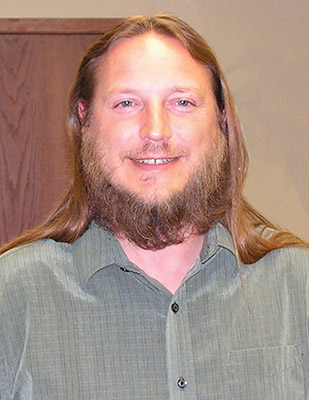 |
Shawn Wohnoutka began his career with the Redwood Cottonwood Rivers Control Area (RCRCA) as a GIS/Outreach technician. Watershed Technician duties were added six years ago. With 11 years of experience at RCRCA and currently the only technician on staff, he is frequently called upon to be a jack-of-all-trades. Shawn grew up in the Twin-Cities but has lived in a rural community for almost twenty years. “Everyone has their own view about a particular issue and the more we know about other's views, the better we understand our own,” says Wohnoutka. |
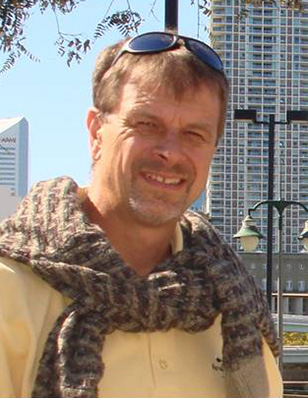 |
Dick Wolkowski served as an Extension Soil Scientist and research soil scientist in the UW-Madison, Department of Soil Science for 22 years. Prior to that, He has worked in the same department as a research specialist for 10 years. He retired in 2011 after a 32 year career at the University during which he was involved in the area of soil management, which included tillage, soil compaction, soil quality, soil conservation, nutrient management, and the land application of municipal and industrial wastes. His wife Terry and he are expecting their tenth grandchild in October. “I learned from my years in Extension that most farmers care about proper soil management and want to do things right. I found my job often became that of a coach, where my job was to encourage and help them exhibit their own talents," says Wolkowski. |
| |
Other Speakers |
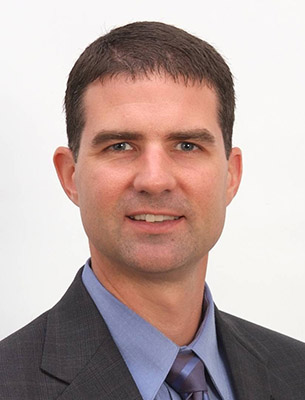 |
Pauley Bradley, John Deere, has worked in the agricultural equipment business for 15 years. A majority of his work centers on linking the agronomics of cropping practices back to the equipment. He has worked internationally and experienced different climates and cropping regimes. Currently, he devotes one third of his time to sustainability and conservation efforts, with the remainder focused on managing talent. “When I'm not at work or being a devoted husband, dad and son, I love managing my 500 acre corn, soybean, wheat and beef cattle farm operation,” says Bradley. “I became a student of conservation when I was 10 and learned quickly that managing water appropriately addresses many conservation concerns in the Midwest.” |
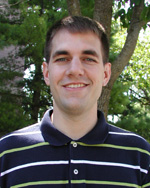 |
Jon Hobbs has been working as a Caltech Postdoctoral Scholar at the Jet Propulsion Laboratory since the beginning of 2014 after completing his PhD work in statistics and meteorology at Iowa State University. At JPL he is involved in NASA's Orbiting Carbon Observatory mission, which will provide high resolution-information on atmospheric carbon dioxide. At Iowa State he spent several years as a statistical consultant and data analyst on a variety of projects in agriculture and social science. Hobbs has a long-standing interest in the regional water cycle of the central United States and its importance in agriculture. “Land-grant institutions provide assets to resilient agriculture through both high-quality scientific research and effective communication and outreach,” says Hobbs. |
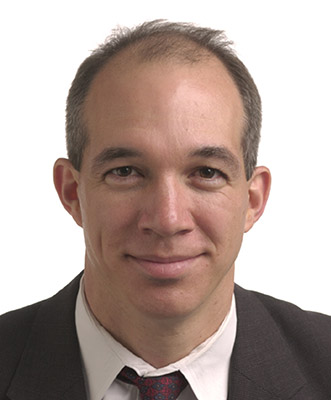 |
William Hohenstein is the Director of USDA’s Climate Change Program Office, within the Office of the Chief Economist. The Climate Change Program Office serves as the focal point for all support to the Secretary of Agriculture on the causes and consequences of climate change, as well as strategies for addressing them. He is also the Acting Director of the USDA Office of Environmental Markets (OEM), also within the Office of the Chief Economist. OEM’s central mission is to facilitate the participation of farmers, ranchers and forest land owners in emerging environmental markets. Hohenstein received his B.S. in natural resource management from Cook College, Rutgers University, and a M.E.M. in resource economics from Duke University’s School of Forestry and Environmental Studies. |
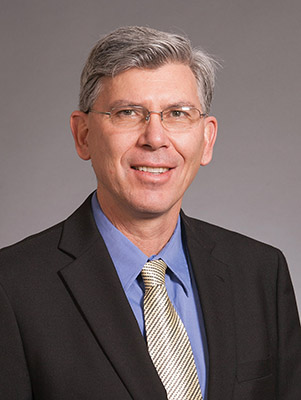 |
Mark Jackson is a fifth generation farmer in Southeast Iowa, growing soybeans, corn and livestock. Sustainability has been his motto long before the term became common place. Social and environmental responsibilities balanced with economic viability are guiding factors for Mark’s family-based farm. As past president of the Iowa Soybean Association and director with the American Soybean Association he views US farmers as world leaders in the growth and resilience of agriculture in the race to feed the world. |
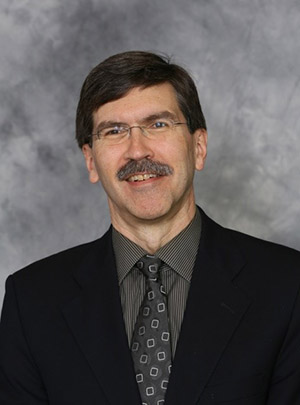 |
John Kadyszewski is serving as director for Winrock International’s Environmental Resources Trust (ERT) and for its nonprofit American Carbon Registry (ACR). Both units seek to harness markets as the most cost-effective way to achieve environmental objectives. ACR was founded in 1996 as the first voluntary carbon offset registry in the world and is now an approved Offset Project Registry for the California compliance market. ERT is currently working to develop water quality markets where payments to farmers are based on the ability to achieve reduced nutrient loadings by changing management practices at the farm level. Kadyszewski has 37 years of experience working on energy and environmental issues. He serves on several advisory boards, including the Sustainable Corn Project advisory board. |
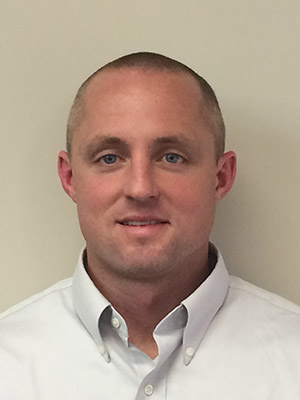 |
David Muth is a founding partner and senior vice president for analytics at AgSolver Inc., located in Ames, IA. He and his partners at AgSolver are developing agronomic decision tools that support compliance and certification, nutrient and residue management, and coupling precision data with financial instruments. Prior to starting AgSolver in 2013, Muth spent seven years at Idaho National Laboratory working in bioenergy systems. Dave grew up on a farm in north-central Iowa which his father still owns and operates. Muth and AgSolver are focused on making the vast amount of precision data that's currently available useful for practical decision making. |
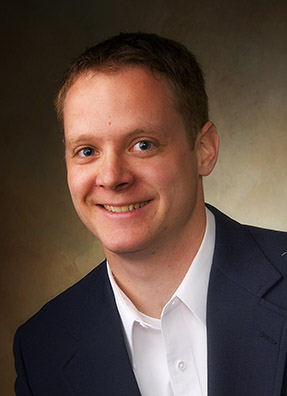 |
Ken O’Brien, Central BU Encirca Services business unit lead, has been with DuPont Pioneer for 8 years. Prior his employment at DuPont Pioneer, he worked in retail sales as a precision agriculture specialist for six years. Ken received his bachelor’s and master’s degrees in agronomy from Iowa State University. He is from a farm family and is the proud father of four children, ages three to 10. “Farming requires knowledge across many different disciplines,” says O’Brien. “Trying to master all of them isn't possible, so focus on your strengths and look for reliable, trustworthy sources of help to fill in your gaps.” |
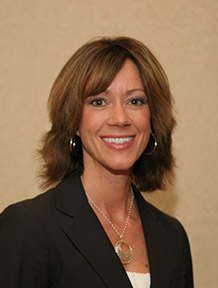 |
Jean Payne serves as the president of the Illinois Fertilizer & Chemical Association (IFCA), a position she has held since 2004. IFCA has over 1,000 members and represents the interests of the ag input supply and service industry in Illinois in areas of regulatory compliance, legislative policy and product stewardship. Jean has worked in the Illinois agribusiness sector since 1988. She serves as an officer of the Illinois Council on Best Management Practices, is on the board of the Fertilizer Institute and is administrator of the Illinois Nutrient Research & Education Council. IFCA believes strongly in the proper stewardship and utilization of agricultural inputs. They work diligently to ensure agricultural inputs are stored, transported and applied in a safe manner, with goals to minimize environmental impact, optimize harvest yield and maximize input utilization. |
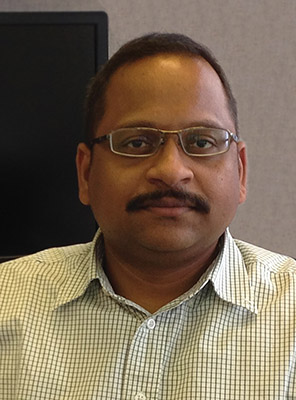 |
Ravi Sripada was a post-doctoral research associate with the USDA-ARS in West Virginia, and has been with Monsanto in St. Louis, MO, for five years. As a senior scientist with Monsanto’s Climate Corporation, his research interests are in watershed-level and field-scale nitrogen, as well as water management. “Our company is working towards agronomic management to improve crop input efficiency,” says Sripada. |
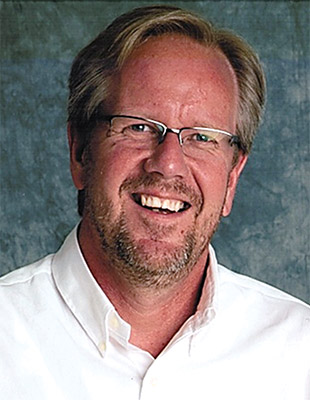 |
Harold van Es is a professor and former Chair of the Department of Crop and Soil Sciences at Cornell University. He works on approaches to precision soil management, including a soil health management framework and a cloud-computing tool for precision nitrogen management (Adapt-N) that is commercialized through Agronomic Technology Corporation. “We can achieve higher farm productivity and reduced environmental impacts through better precision management tools,” says van Es. |














































